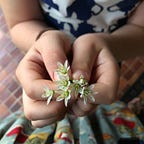Our Identity is changing
I met someone today who shared what he’s been dealing with in his life over the last 6 months.
Sometimes the greatest gift you can give someone is to witness them; to see them in their vulnerability and to hold that space for them.
This man wore the discomfort of change on his body, heavily on his shoulders, but the look in his eyes showed the veil of his pain was lifting and he could see the value he was gaining from the tough experiences. “It will take time, I know that, but I’m not sure I’ll be there for her on the other side of all this.” This man is supporting his partner through medical problems and clinical depression.
2020 was a very hard year for many people, for many different reasons and I believe the fall out will be felt for years. Globally and individually, on all layers, our identities are changing.
Global, National and Individual identity
Globally the changes will be felt with ongoing travel restrictions managed by each boarder, governing what they think is right for their own sense of national pride, protection and identity. Organisations are still changing to support greater online sales and service pressures; some business completely changed their brand, others shifted platforms, some new businesses seeing a gap and creating a new brand identity. My local cafe changed their menu to cater for grab and go food and coffee (still amazing!) but they kept their sense of identity in the unique food combinations they create as well as their signature friendly service and big smiles.
On an individual level we have all been impacted in some way; economically, physically, mentally or spiritually. There have been many job losses, job changes, new additions to families and some losses, there has been a lot of forced self-reflection and of course an array of health challenges.
I’m sure you have reflected on what 2020 represented to you.
The impacts of COVID 19 have been changing our sense of self, our perception of worth and the way we behave in person and online. There are already studies on the mental health impacts of the COVID 19 pandemic and I suspect the studies will find on-going impacts as people recover themselves, integrate the lessons they learnt last year and then begin to live life in a post pandemic world.
As we grow and change, so will our sense of identity and our behaviours. Hand sanitiser is now common place in every physical business space, online shopping volumes have skyrocketed; according to AustPost just in April 2020 online purchases grew 6.8%, when compared to the 30 days to 18 Dec 2019. Through the Australian Medicare system, Medicare card holders are now able to access 20 free psychology sessions per calendar year , which has risen from 10 in previous years.
Identity is fluid and changes when there is a need or a strong internal/external influence. Say something like a global pandemic…
Digital identity
Globally thinking around digital identity solutions is shifting and the massive uptake of ‘digital life ‘2020 has highlighted the value and the need for more focus on digital identity frameworks. The world economic forum. reports there are still over a billion people with no legal identity.
In Chile, the national ID-linked basic account — Cuenta Rut — which covers most low income people, enables payments of the “Bono COVID-19” payment directly into the bank accounts of more than 2 million vulnerable Chileans.
There are ongoing developments in consumer data rights and open information frameworks in Australia as 2021 herald the next round of compliance dates for Open Banking.
We’re no longer shifting towards a digital and information economy, or digital transformation, we’re embracing it, growing it and in so many ways COVID 19 has forced most of us to push past any remaining mental barriers we had to a digital future.
The identity economy
Psychotherapist Ester Perel, speaks about modern relationships, both personal and professional and refers to the identity economy that millennials are driving. An economy where the ‘I’, the self, is the commodity. We live in a world where more and more people see the value in personal growth and self-awareness. Intentional growth and changes are valued as we seek to be a ‘ better’ version of our-selves (personally and professionally).
Now, I acknowledge there are likely many degrees of separation between the billions of people without a legal identity and the millennials seeking self-betterment through regular job changes and new relationships that allow their own sense of identity to flourish. But there are a few common threads between these two groups of people and all those people impacted by COVID19 i.e. all of us!
We are now living in an identity economy; whether it be in traditional technology terms of identity and access management and the behavioural attributes we accumulate online, or whether it’s challenging our own internal paradigms and making intentional changes to become a better version of ourselves; every day we create, exchange and manage aspects of our identities.
Back to the man I meet today; the comment he made that struck me the most was “The children no-longer trust that she will stay with us. They worry about what we’ll do when she breaks down again.” This comment really stuck with me because trust and identity are so intrinsically linked. A person’s sense of self grows from a foundation of trust (sometimes lack thereof). Identity can change but in order to flourish we need a foundation of trust.
So, I would like to leave you with a question to ponder; What aspects of your own identity have changed since the pandemic?
``````````
Identity my muse; A muse is something or someone that inspires creativity or deep contemplation. I fell head over heels in love with my muse. The intoxicating allure of deep thought and reflection, growth and change that comes when we muse.
